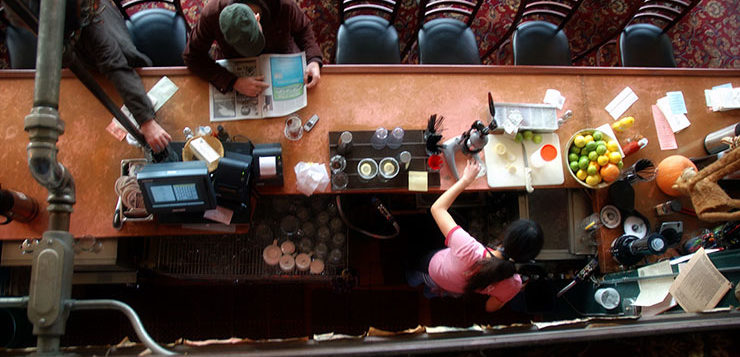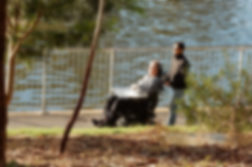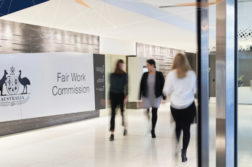You won’t believe the rates of sexual harassment of hospitality workers in Australia. Cassandra Taylor breaks it down.
The pay packets of Australia’s hospitality workers took a hit last fortnight as a further drop in penalty rates came into effect on 1 July. For the second year in a row, these penalty rates will be reduced as a result of a controversial Fair Work Commission decision last year, which also impacted the pharmacy, fast food and retail industries. The practical impact of this change is that some of Australia’s most vulnerable workers will become more reliant on tips and, in turn, more likely at risk of workplace sexual harassment.
A recent survey by HospoVoice revealed that 89% of hospitality workers have been sexually harassed at work, and 19% have been sexually assaulted. For many who have worked in hospitality, including myself, it may even come as a shock that 11% were spared this humiliation.
Whilst at university, I worked in a shoe store, a café, a restaurant, a bar, a bowling alley and a pub. I had my arse grabbed by my boss, received an unwelcome kiss from a customer and was subjected to more inappropriate comments than I can recall. I smiled and laughed it off, never complained, and received great tips.
The culture at one venue I worked at, on and off, for six years was particularly sexually hostile. We were told to only keep CVs handed in by “attractive girls”, and throw all others in the bin. Every December, we had to wear tight red t-shirts with ‘Merry Christmas’ written across the bust in green. There were usually only sizes small and extra small to choose from, and the extra small ones were always left to the unlucky last picks.
Working in the gaming room, our job was to flirt with creepy old pokie addicts, bring them free food and do whatever we could to keep them playing. We always got the best tips in the gaming room and, at the time, this seemed enough to justify the wandering hands we were subjected to.
Looking back, I sometimes wonder why I put up with it. I think part of me didn’t think it was serious enough to make a big deal of – it happened almost every shift, and I witnessed my workmates experience far worse. But part of me kept quiet because I knew that if I spoke up, I would lose my shifts to someone who didn’t. Besides, I knew that grinning and bearing it resulted in better tips and, as a uni student, every dollar counted.
The normalisation of sexual harassment in the workplace for the many men and women who start out their working lives in the hospitality industry has flow on effects for all Australian workplaces. There is a real misunderstanding of the types of behaviour that amount to sexual harassment in Australian workplaces, and this acts as a barrier to reporting.
The most recent telephone survey conducted by the Australian Human Rights Commission about sexual harassment demonstrated that 18% of respondents who said they had not been sexually harassed (based on the legal definition) then went on to report experiencing one or more behaviours that are likely to constitute sexual harassment. This 2012 figure is slightly lower than the 22% figure from the same survey conducted in 2008. However, one of the most common reasons for victims not making a formal complaint continues to be the perception that the harassment was not serious enough.
The reduction in take-home pay, and increased reliance on tips, imposed by the Fair Work Commission’s decision also takes our industrial relations system one step closer to countries like the USA. In the USA, four of the seven lowest paid occupations are tipped occupations, even with tips being taken into account. 72% of tipped workers are women and 38% are people of colour. These workers live at three times the poverty rate of the rest of the country. These statistics demonstrate that the American industrial relations system is one that we should be avoiding at all costs, not modelling our own on.
There has been a lot of talk recently about the financial impact that the drop-in penalty rates will have on Australian workers. Bill Shorten announced at a recent conference of the Australian Council of Trade Unions that Labor would reverse the penalty rate cuts if it wins the next election “to protect the take home pay of working Australian into the future”. The controversy has even split employers. A number of employers, including Kikki K and Lush, have agreed not to pass on some of the cuts. Whereas, George Calombaris has been a longstanding and outspoken opponent to penalty rates due to their apparent financial impact on businesses, despite staff of his hospitality empire alleging that their penalty rate entitlements were routinely ignored even prior to the official cuts coming into effect.
By reversing the Commission’s penalty rates decision, we can take a step towards protecting workers in the hospitality industry from sexual harassment and reversing the sexually hostile culture already in place. Bystanders can also play an important role in putting a stop to sexual harassment. According to the Human Rights Commission, almost half of workplace sexual harassment stops after a complaint is made, yet only 20% of victims complain.
So if you see something inappropriate happening at the bar, say something. And, if you can, why not spare some change for the bartender while you’re at it.
Donate To New Matilda
New Matilda is a small, independent media outlet. We survive through reader contributions, and never losing a lawsuit. If you got something from this article, giving something back helps us to continue speaking truth to power. Every little bit counts.




